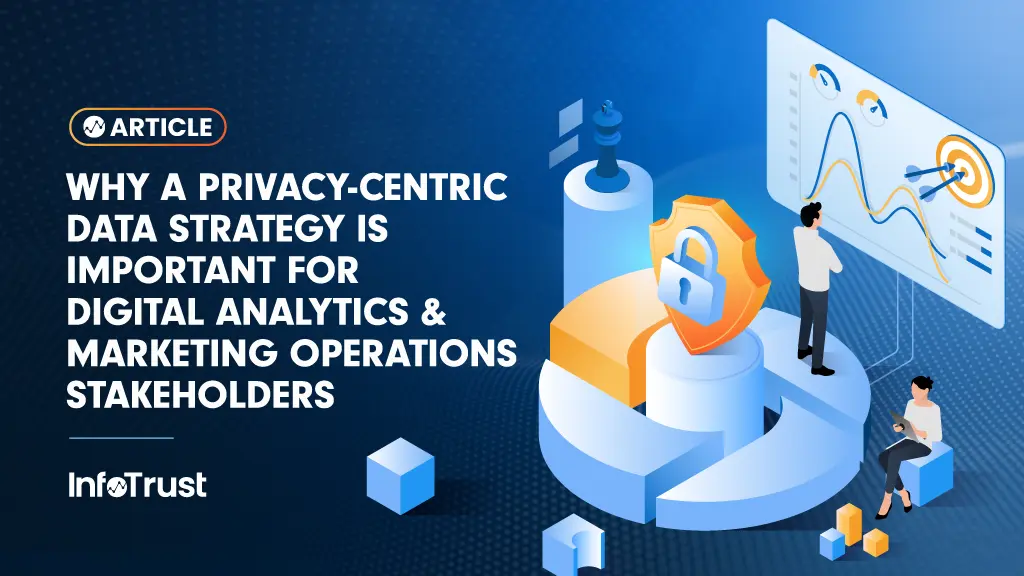In the realm of digital analytics and marketing operations, data isn’t just a resource—it’s the cornerstone of strategy and decision-making. However, the integrity and governance of how this data is handled can significantly impact an organization’s reputation and operational capabilities. This is why a privacy-centric Data Strategy is crucial.
The Necessity of a Privacy-Centric Data Strategy
For stakeholders in digital analytics and marketing operations, the importance of a privacy-centric data strategy cannot be overstated. Such a strategy ensures that the data collected is not only clean and compliant but also actionable. This is increasingly critical as businesses navigate complex regulatory environments that dictate how user data can be collected, stored, and used.
A privacy-centric approach addresses several key concerns:
- Maintaining Data Integrity: Helps in keeping the data set clean and reliable, which is essential for accurate analysis and decision-making. Dirty data leads to misinformed decisions.
- Marketing Effectiveness: With marketing maturing at a faster rate than ever, your data needs to not only serve you for today’s tactics, but also enable increasingly advanced use cases. A privacy-centric data strategy ensures you have the data you need to support today’s and tomorrow’s tactics.
- Operational Resilience and Efficiency: Reduces the risk of needing to dismantle valuable capabilities due to governance and privacy concerns, while providing efficiency in technologies used to achieve business outcomes. This ensures that marketing operations can continue smoothly without interruptions but also without redundancies or inefficient martech infrastructure leading to wasted investment.
- Compliance with Data Privacy Laws with Minimal Tactical Impact: Ensures that all data handling practices are in line with GDPR, CCPA, and other privacy regulations, thereby avoiding hefty fines and legal complications. A robust, privacy-centric data strategy can enable tactics/approaches that have degraded in effectiveness as cookies become less reliable. Ideally, a privacy-centric data strategy is designed in collaboration with all key stakeholders (legal, marketing, analytics, MOPS), which allows you to act with confidence in activating your data despite the evolving regulatory environment while aligning internal teams.
Benefits of Designing Your Data Strategy with InfoTrust
InfoTrust partners with organizations to develop a Privacy-Centric Data Strategy designed to empower digital analytics and marketing operations stakeholders with tools and approaches that ensure their data practices are not only compliant but also optimized for performance. Here’s how this strategy can benefit your organization:
- Addressing Specific Pain Points: Whether it’s the challenge of demonstrating the business impact of marketing or maintaining a clean data set across a diverse MarTech ecosystem, the Data Strategy is tailored to meet these specific needs.
- Ensuring Clean, Compliant, and Actionable Data: By focusing on the cleanliness and compliance of your data, the future-looking Data Strategy helps mitigate risks associated with data governance and privacy concerns.
- Strategic Advisory and Guidance: Beyond compliance, InfoTrust provides strategic insights that help organizations leverage their data for competitive advantage while staying within the bounds of privacy laws.
- Educational Support and Training: Ensuring that your team is up-to-date on the latest in data governance and privacy, enhancing internal capabilities and compliance.
Conclusion
Adopting a privacy-centric data strategy is essential for protecting your organization and ensuring that your digital analytics and marketing operations are both effective and compliant. With the support of InfoTrust and building a durable privacy-centric Data Strategy, you can navigate the complexities of data privacy with confidence and clarity, ensuring that your data works for you in the safest way possible.
Unlock the power of privacy-centric marketing that drives meaningful engagement—without compromising user trust. Our experts are ready to answer your questions, help you navigate data privacy regulations, and optimize marketing strategies while ensuring compliance and transparency. Let’s talk—reach out now!


